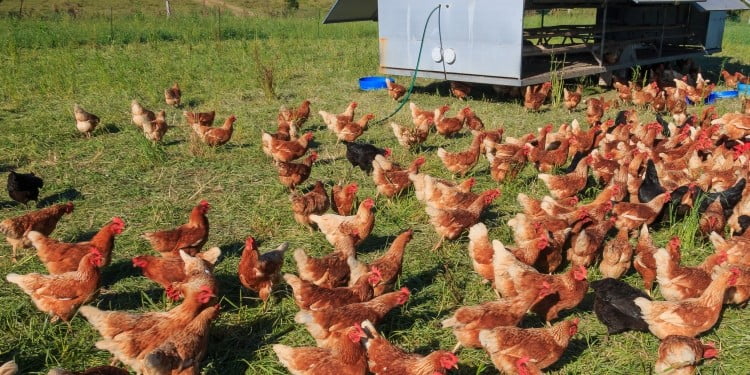Free-range eggs are eggs that come from hens that have access to an outdoor area where they can roam freely and engage in natural behaviors like foraging for food and dust-bathing. These eggs are sometimes also called free-raised eggs. Free-range eggs are becoming more popular due to concerns about the welfare of hens in conventional egg production facilities, as well as the potential health benefits of consuming eggs from hens that are raised in a more natural environment.

One of the main benefits of free-range eggs is that the hens that lay them are allowed to engage in natural behaviors that can improve their welfare and overall health. Hens that have access to the outdoors can get more exercise and have a more varied diet. It results in eggs that are richer in nutrients like vitamins A and E, as well as omega-3 fatty acids. Additionally, free-range hens may have less stress and be less susceptible to disease, which can also lead to healthier eggs.
Another potential benefit of free-range eggs is that they may contain lower levels of certain harmful substances than eggs from hens that are raised in conventional production facilities. For example, free-range hens that have access to outdoor areas where they can forage for food may have a lower risk of exposure to pesticides and other chemicals that are commonly used in agriculture. Additionally, free-range hens may have lower levels of stress hormones like cortisol, which can affect the quality and nutritional content of their eggs.
There is also some evidence to suggest that free-range eggs may be more nutritious than eggs from hens that are raised in conventional production facilities. For example, one study found that free-range eggs had higher levels of vitamin A and E, as well as omega-3 fatty acids, than eggs from hens that were raised in cages. Another study found that free-range eggs had higher levels of lutein and zeaxanthin, two nutrients that are important for eye health.
However, it’s worth noting that not all free-range egg production systems are created equal, and the welfare and nutritional quality of eggs can vary depending on the specific farming practices used. Some free-range egg producers may allow their hens to have only limited access to outdoor areas, while others may use methods like mobile coops to give their hens more freedom to move around. Additionally, some free-range egg producers may use organic or non-GMO feed, while others may not. Consumers who are interested in purchasing free-range eggs may want to look for labels or certifications that indicate that the eggs come from hens that are raised in a way that meets certain animal welfare and environmental standards.
In conclusion, free-range eggs are eggs that come from hens that have access to outdoor areas where they can roam freely and engage in natural behaviors. These eggs may offer several potential benefits, including improved hen welfare, lower levels of harmful substances, and higher levels of certain nutrients. However, the welfare and nutritional quality of free-range eggs can vary depending on the specific farming practices used, so consumers may want to look for labels or certifications that indicate that the eggs come from hens that are raised in a way that meets certain standards.












